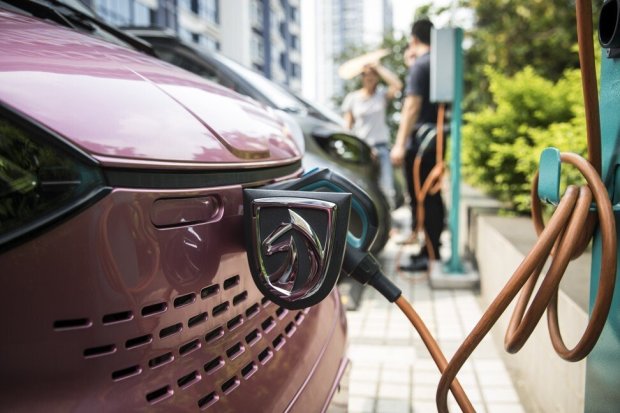
First, they came for the catalytic converters.
Thieves have long targeted the part of your car that converts engine-exhaust pollutants into something less harmful to the environment.
DON'T MOVE: Ford Slashes F-150 Base to Under $50,000 Amid Tesla EV Price War
Catalytic converters are rich in precious metals, such as platinum, palladium, and rhodium, and they can be and are resold by thieves.
In May, the National Insurance Crime Bureau said the U.S. experienced more than 64,000 catalytic converter thefts in 2022, with Texas and California leading the way.
Electric vehicles don't produce exhaust and they don't need need catalytic converters. So EV owners have nothing to worry about, right?
Another Hot Item for Thieves: EV Charging Cables
Well, actually ... no.
It seems that electric vehicle owners are discovering that the cables they use to charge their cars are a hot item for thieves, NBC Los Angeles reported.
The thieves either post them on popular resale websites or sell them for scrap metal since they're full of expensive copper wiring.
Copper prices surged during the pandemic, and while they may have come down, thieves are still stealing the malleable metal.
More than 1 million electric vehicles are on California roads, and the state is responsible for about half the total U.S. EV market share, so charging-cable theft is big news.
The NBC report described how one Los Angeles homeowner left his house one morning and found his EV charging cord had gone MIA.
The victim checked his Ring security camera. A man in a hoodie and mask had walked up his driveway in the early morning, unplugged the cord from his car, unplugged the other end from the outside wall socket, and took off on a bike.
"This guy was so quick," the victim said. "He was so fast at it."
On apps like Nextdoor people across Southern California are posting videos showing thieves stealing the EV charging cables, often in about 13 seconds or less.
What to Do to Protect Your EV Charging Cable
Last year KOLO 8 News reported that thieves in the Reno, Nevada, area were targeting charging stations for their cables.
Kelley Blue Book has a few suggestions for EV owners looking to hold onto their charging cables.
Ideally you should charge your car in your garage, but if that's not an option, try charging your car away from street view to cut down on risk, the website We Power Your Car suggested.
Consider using a well-sized padlock to attach and lock your cable to a fence, your aluminum wheel, or an installed cable tether on the underside of your car.
And opt for for a tethered charger that has a charging cable permanently attached to it, making it more difficult for thieves to remove.
Several home EV chargers available on the market are socketed models with a cable lock feature, enabling users to lock their charging cables into place using a smartphone app.
This allows the charger to function as a tethered model while it's in use, with the option to securely attach the charging cable to the charging unit.
You can also get a dashcam with motion sensors. If it doesn't deter the thief from ripping you off, at least you'll have footage of the crime in the event of a dispute with your car insurer.
Receive full access to real-time market analysis along with stock, commodities, and options trading recommendations. Sign up for Real Money Pro now.







